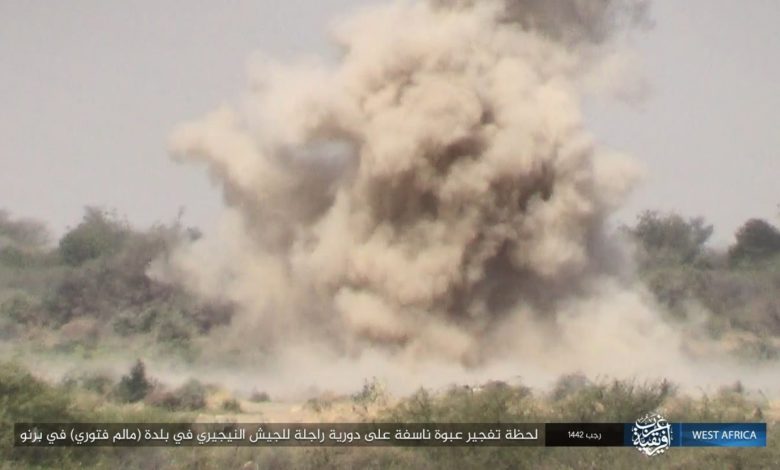Abandoned Landmine Kills 3 Children, Injures 3 Others In Borno Village
Landmine believed to have been planted by terrorists to bring down a bridge in a Borno village killed three children leaving three others in critical conditions.

At least three children have died and some others sustained injuries following an explosion from a forgotten undetonated bomb believed to have been planted by insurgents in a village in Borno State, Northeast Nigeria, officials said.
The explosion from the landmine buried under a bridge at Ngala village went off Saturday when the children were playing around the area. It is believed that the children’s fiddling at the location triggered the device.
Local sources at Ngala, a border community in Borno State, informed HumAngle that the device which went off with a deafening sound may have been planted by suspected members of the terror group to bring down the Mblu bridge.
“The Boko Haram planted the bomb and may have forgotten about it or it refused to go off at the time they wanted it to,” said Bukar Usman, a local security operative who spoke to HumAngle.
“And now it is killing our children who don’t know the dangers around our communities,” he said.
The Jamaatu Ahlil Sunnat Liddawati wal Jihad locally known as Boko Haram had within 2013 and 2015 responsible for bringing down many highway bridges that link Borno State with other parts of the country.
Though the Borno State government was yet to make an official statement about the accidental explosion, the United Nations has since described the sad development as one of the biggest challenges that children are likely to face dealing with unexploded remnants of war.
The UN system had in a statement confirmed that children “as young as 12 years – who were playing on Mblu Bridge in Ngala,” were killed by the forgotten explosives.
The United Nations Children Fund (UNICEF) said the incident is “yet another sad reminder that children remain direct and indirect targets of the protracted conflict wracking north-east Nigeria.”
“While three children have sadly lost their lives, three others are in critical conditions while two other children sustained mild injuries,” UNICEF’s Representative in Nigeria, Peter Hawkins, said.
“First of all, we extend our deepest and heartfelt sympathy to the families of the children killed. No family should have to go through this – and no child should fall victim to unexploded remnants of war while playing.”
Hawkins said children are at particular risk from unexploded ordnance, which are small enough to pick up or kick around, and which children can mistake for toys or objects of value.
He said such weapons account for over half of those killed or injured by landmines and other explosive remnants of war globally.
“These deaths are unacceptable. All sides to the ongoing conflict must protect children and prioritize their wellbeing at all times. Playing fields, schoolyards and communities must be safe and habitable for children,’’ said Hawkins.
“Children’s lives should not be at stake in a conflict they didn’t start. We must address the shrinking safe spaces for children and ensure that children – especially those already affected by conflict – are protected and have a chance to survive and fulfil their potential.”
The incident happened as the Borno State Government gears up the process of returning all IDPs to their reclaimed hinterland communities.
So far over 200,000 IDPs have been returned to their homes many years after fleeing attacks by members of the terror group.
The insurgents had occupied most of the fled communities using them as camps and garrisons which they fortified with land mines to evade attacks from government forces.
Support Our Journalism
There are millions of ordinary people affected by conflict in Africa whose stories are missing in the mainstream media. HumAngle is determined to tell those challenging and under-reported stories, hoping that the people impacted by these conflicts will find the safety and security they deserve.
To ensure that we continue to provide public service coverage, we have a small favour to ask you. We want you to be part of our journalistic endeavour by contributing a token to us.
Your donation will further promote a robust, free, and independent media.
Donate HereStay Closer To The Stories That Matter




